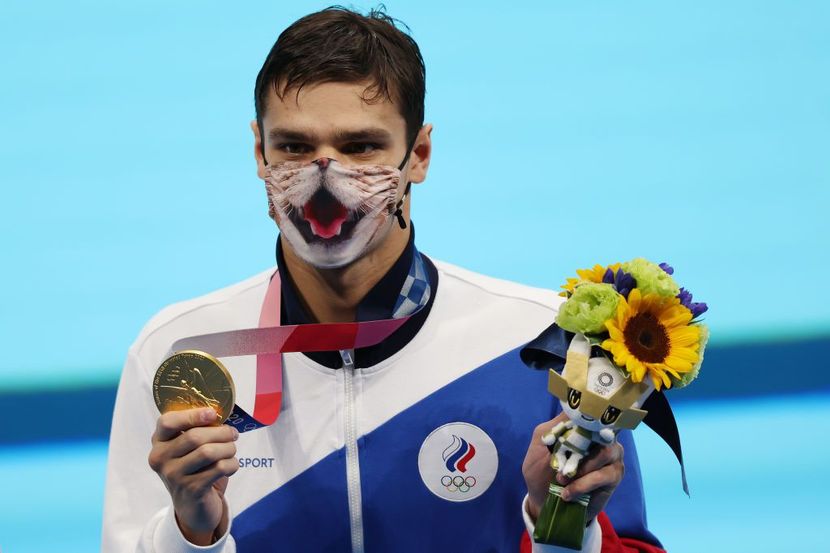
Evgeny Rylov (ROC) added the 200m crown to his 100m title becoming the fifth backstroker ever to achieve this double at the Olympics. USA’s Ryan Murphy, having done the same in Rio 2016, claimed his second medal here to boost his collection to four podiums in backstroke, following the footsteps of legendary Roland Matthes (GDR) and Aaron Peirsol. (USA).
This event made its ‘real’ debut here in Tokyo back in 1964 (before it was held once, in 1900), and once the 100m was reintroduced in 1968, the backstroke double became a possibility and for three editions it turned almost into a tradition. The legendary East German Roland Matthes completed the double twice, in 1968 and 1972, then John Naber (USA) repeated it in 1976. After that these big runs ceased and the double occurred in every 16 years, every time achieved by Americans: Rick Carey made it in 1984, Lenny Krayzelburg in 2000 and Ryan Murphy in 2016.
Murphy was on course to retain one of his titles at least as the Russians had already made a 1-2 in the 100m – Rylov won, Kliment Kolesnikov was runner-up ahead of Murphy.
But Rylov was way too powerful to be caught – he looked pretty much formidable, led right from the beginning and paced out Murphy and everyone else in each leg to win by 0.88sec in an Olympic record time of 1:53.27, just 0.04sec shy of his European mark. Rylov, world champion in 2017 and 2019, also halted the US’ amazing run in this event as the last time a non-American hit the wall first dates back to 1992 when local hero Martin Lobez Zubero lit up the pool in Barcelona. See full results
"It was really tough to swim the last 50m... the time is not good and not bad, so it's OK. Not an extraordinary result” he said, adding that in Rio, finished 3rd, just 0.01sec shy of the silver, he learnt a lot. “2016 was a good experience. I learned my lessons, did my homework, and I’m where I’m now.”
While Rylov seems to bring back the tradition of the backstroke double for straight editions, Murphy had to settle for the minor spoils once more here (silver after his bronze), though this boosts his tally to four medals in back events, only Matthes and fellow American legend Aaron Peirsol has more (5 apiece). GB’s Luke Greenbank took the bronze.